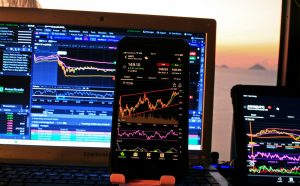CFD Trading
Advantages And Disadvantages Of Trading CFDs

CFDs or Contract for Difference are derivative-based assets. You can buy a contract that is supported by the value of the underlying asset. This means that you don’t have to buy the asset directly. You can still profit from the asset by trading a CFD of it.
With the right skills, you can profit greatly by trading CFDs. You need to ensure that you have the right CFD trading strategies and the experience to avoid a devastating loss from the market.
Here are some of the advantages that traders gain from trading CFDs.
Leveraged Trading
One of the biggest benefits of trading CFDs is that traders can gain large leveraged positions. Leveraged trading means that as a trader, you can get a loan that allows you to stake a position larger than the amount of money you have in your account.
The amount of leverage that a trader can use to trade is dependent on several factors. First, the broker. Different brokers offer different levels of leverage for CFD trading. Another factor that will determine how much leverage you can get is the market you choose to buy CFDs from.
Also, the underlying asset of the CFD being traded determines how much leverage a trader can get.
Variety of Markets
Another advantage of CFD trading is the numerous number of markets to trade. As a CFD trader, you can invest in as many markets as your broker or trading platform allows you to.
When you want to buy a CFD, you are not limited by the markets. You can buy a CFD for any asset in any market that you can access.
This allows you as a trader the opportunity to find a highly profitable deal in different markets. Since markets perform differently, you can choose a target asset based on the process of analyzing and choosing a market to invest in.
Short-Term Assets
Trading CFD is best for day traders. CFDs allow you as a trader to make your profit fast.
For most traders, scalping is the best trading strategy for CFDs. This means that the trader can enter and exit numerous positions in a single day.
Overnight trading of CFD contracts is highly expensive. This is a deterrent measure by bankers to ensure that you offset your holdings before the day’s session ends.
With the available opportunities to speculate with a CFD, the trader has an opportunity to make as much money on a trade.
Disadvantages Of CFD Trading
You Are Betting Against Your Broker
When you trade CFDs, you are going against your broker. In a CFD contract, the broker promises to give the broker a portion of his profits. Your broker profits from your profits and from your losses.
When you make a loss from your CFD trading, you are going to handle the loss on your own. Making a loss means that you have the best against the broker. Thus the broker is likely to limit the number of CFDs that you can invest in.
Leverage
Leverage is both an advantage and a disadvantage. Leverage allows you to operate a larger asset than you would have with the available cash.
CFDs are highly volatile as they are dependent on diverse types of trading. If the price of the underlying asset in a CFD moves negatively, the trader loses all their invested money. At the same time, they need to pay back the leverage advantage they earned or lost to the broker.
Cost Of Holding Your Position Long-Term
CFD trading is inherently a short-term contract. Different traders and investors have different trading preferences. There are those who prefer long-term trades over short-term trades.
When you hold CFDs for long-term trades, you will make a loss. This is due to the overnight fees charged by traders to hold your asset.
Further, the longer you hold onto an asset, the more you are likely to make a loss if the market moves against your prediction causing loss.
Conclusion
There are many advantages and disadvantages to trading CFDs. However, traders should identify the times when they are making profits. This allows the traders to learn more about CFDs. If you don’t monitor your trade, your trading account can easily lose all the money invested and any other left in your account.







